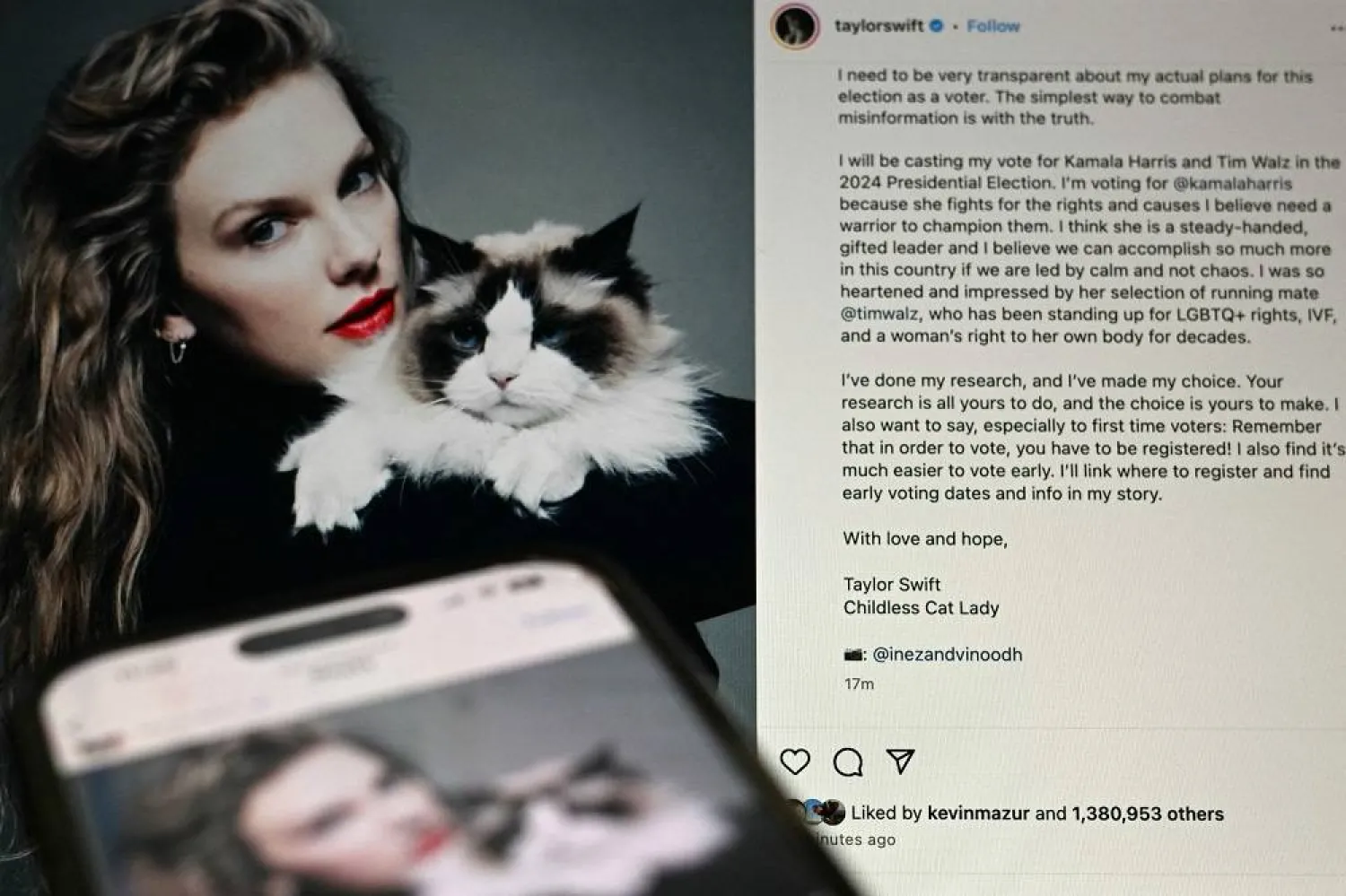Taylor Swift, one of the music industry's biggest stars, endorsed Kamala Harris for president shortly after the debate ended on Tuesday night.
"I think she is a steady-handed, gifted leader and I believe we can accomplish so much more in this country if we are led by calm and not chaos," Swift wrote in an Instagram post, which included a link to a voter registration website.
Swift has a dedicated following among young women, a key demographic in the November election, and her latest tour has generated more than $1 billion in ticket sales. In a half hour, the post received more than 2.3 million likes.
She included a picture of herself holding her cat Benjamin Button, and she signed the message "Childless Cat Lady." The remark is a reference to three-year-old comments made by JD Vance, Donald Trump's running mate, about women without children not having an equal stake in the country's future.
A Harris senior campaign official said the endorsement was not coordinated with the campaign. Tim Walz, Harris’ running mate, appeared to learn about the endorsement in the middle of a live interview on MSNBC. As Rachel Maddow read the text, Walz broke into a smile and patted his chest.
"That was eloquent. And it was clear," Walz said. "And that’s the kind of courage we need in America to stand up."
Swift wrote that her endorsement was partially prompted by Trump’s decision to post AI-generated pictures suggesting that she had endorsed him. One showed Swift dressed as Uncle Sam, and the text said, "Taylor wants YOU to VOTE for DONALD TRUMP."
Trump's posts "brought me to the conclusion that I need to be very transparent about my actual plans for this election as a voter," Swift wrote. She added that "I’ve done my research, and I’ve made my choice."
The Trump campaign dismissed Swift's endorsement.
"This is further evidence that the Democrat Party has unfortunately become a party of the wealthy elites," said spokesperson Karoline Leavitt.
"There’s many Swifties for Trump out there in America," she said, herself included.
Swift's endorsement was not exactly a surprise. In 2020, she supported President Joe Biden, and she cheered for Harris in her debate against then-Vice President Mike Pence. She also was openly critical of Trump, saying he had stoked "the fires of white supremacy and racism."
Swift is a popular figure nationwide, but especially among Democrats. An October 2023 Fox News poll found that 55% of voters overall, including 68% of Democrats, said they had a favorable view of Swift. Republicans were divided, with 43% having a favorable opinion and 45% an unfavorable one.
AP VoteCast suggests that a partisan divide on Swift was apparent as early as 2018. That’s the year Swift made her first political endorsement, supporting Tennessee Democrat Phil Bredesen for Senate over Republican Marsha Blackburn.
VoteCast found that among Tennessee voters that year, 55% of Democrats and just 19% of Republicans said they had a favorable opinion of Swift. Blackburn won by a comfortable margin in the deep red state.
Swift is the leading nominee at Wednesday’s MTV Video Music Awards. While it’s unclear whether Swift will attend the show in New York, she could use any acceptance speeches to elaborate on her support of Harris.
The event was shifted a day later to accommodate Tuesday’s debate, and MTV has a long history of encouraging voter participation.









